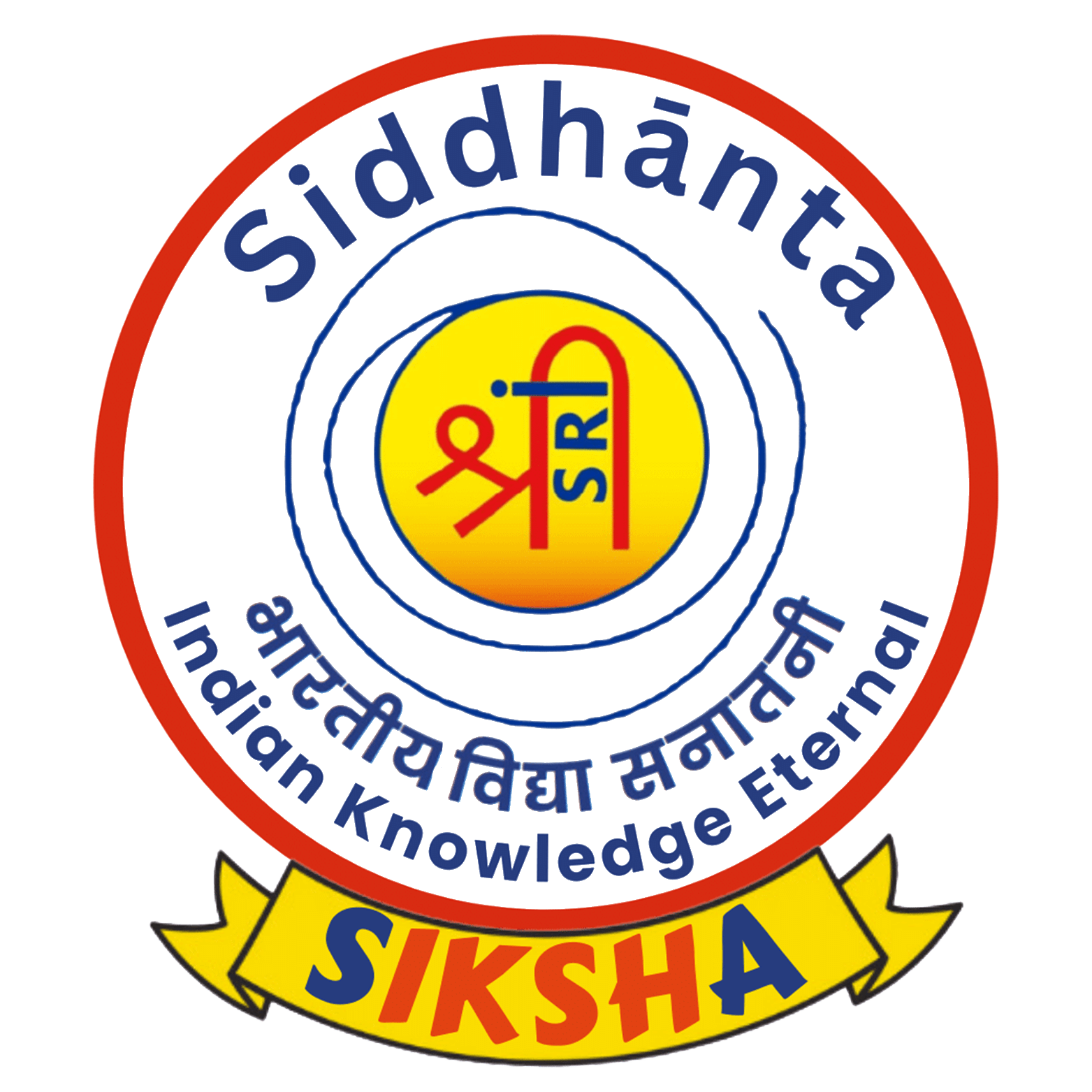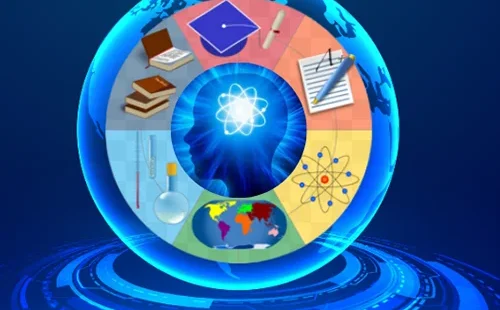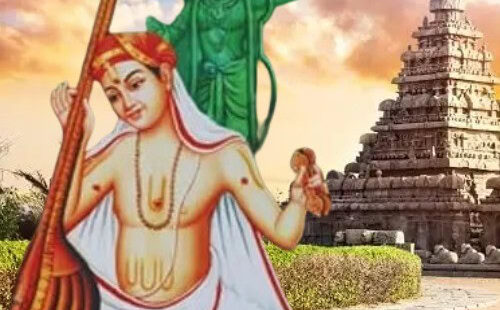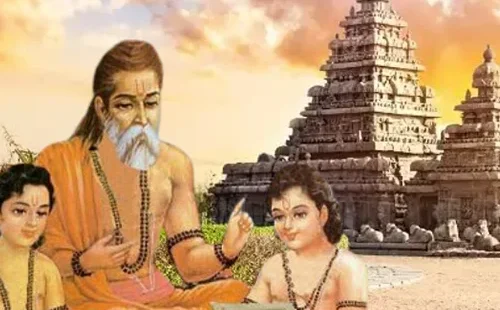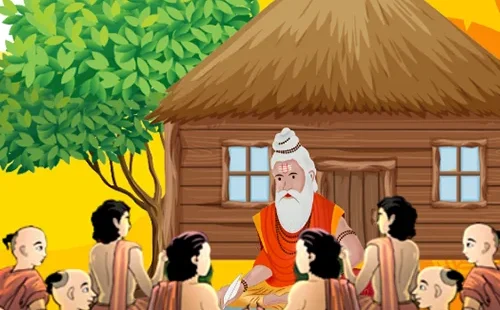Bharatiya Knowledge Ecosystem
- 30 Hours
-
2 Credits
*(T&C Apply) Credits applicable only for Undergraduate and Postgraduate students enrolling for SIKSHA courses through academic institutions based in India.
- UG/PG
- Foundation
- Faculty
₹5,000.00(GST additional)
About The Course
Ancient Indian knowledge is poised to drive the evolution of next-generation knowledge platforms and steer global thought-leadership with Bhāratīya ‘dṛṣṭi’ and ethos. Key highlights of the course include: ● Curated for all academic disciplines as a foundational programme ● Covers India’s knowledge framework, its genesis, evolution and key components ● Essential first step to navigate Indian Knowledge Systems meaningfully and set the context for discipline-specific concepts aligned with chosen career fields ● Bird’s eye view of India’s traditional knowledge corpus ● Contextualised and contemporised view with respect to sciences, technology, literature and arts
Syllabus
- Unit I: Knowledge - Vedic and contemporary contexts (1 & 2)
- ● Concepts and terminology related to knowledge in ancient Indian literature: traditional terms for knowledge, learning, and skills.
- ● Examination of modern terms such as 'knowledge,' 'skills,' and 'arts' as used in academic and professional contexts, including their semantic evolution.
- ● Comparison of educational philosophies: vocational training versus education for its own sake (Liberal Arts perspective).
- ● Understanding knowledge in ancient Indian contexts and its relevance today.
- ● Contemporary studies on ancient Indian knowledge: mapping, researching, validation, and application.
- Unit II: Sources of Indic (Vedic) Knowledge (3 to 8)
- ● Oral sources (memory-based) and written sources (manuscripts and published texts).
- ● Overview of key sources: Vedic texts, philosophical schools, and technical treatises.
- ● Methods for reconstructing and understanding ancient knowledge from existing oral and written sources
- Unit III: Vedas (9 &10)
- ● Overview of the main components of the Vedas: hymns, ritual texts, philosophical treatises, and mystical writings. Explanation of how these texts serve as foundational sources for various philosophical and interpretative traditions.
- ● Examination of both oral and written traditions.
- ● Discussion on the enumeration of hymns: the concept of finite versus infinite Vedas, and the implications for the scope of knowledge contained within them.
- ● Classification of the Vedas and its significance for the study of Indic knowledge systems.
- ● Understanding the Vedas as repositories of knowledge:
- ● Traditional perspective: Vedas as revelations or discoveries of fundamental principles that influenced later intellectual developments.
- ● Modern perspective: Vedas as sources of true sciences, analogous to modern scientific models.
- Unit IV: Vedas and Yajñas (11 &12)
- ● Relationship between the Vedas and rituals:
- ● The deep interconnection between Vedas and yajñas.
- ● The role of Vedas in the performance of yajñas.
- ● Vedas as the driving force behind yajñas, as viewed in the exegetic tradition.
- ● The "Science" and "Technology" of Yajña:Understanding nature as a yajña, with natural processes symbolized by the fire ritual in the cosmic body, and human rituals as imitations of these natural processes.
- ● Classification of Yajñas and Ritual Actions (Karma)
- ● Types of yajñas: regular (nitya), occasional (naimittika), and desired (kāmyayajñas).
- Unit V: Vedāṅgas (13 to 19)
- ● Vedāṅgas: Original Context and Contemporary Knowledge
- ● Phonetics- Śikṣā:
- ● Original Context: Preservation of Vedic pronunciation.
- ● Contemporary Knowledge: Foundations of modern phonetics and phonology; study of articulation and phonation; development of a scientific table of phonemes for all Indian languages.
- ● Metrics- Chandas:
- ● Original Context: Preservation of Vedic oral texts and their prosody.
- ● Contemporary Knowledge: Contributions to mathematics, including binary number calculations, the concept of zero, and combinatorics.
- Linguistics-Vyākaraṇa:
- ● Original Context: Clarity and precision in Vedic language.
- ● Contemporary Knowledge: Foundations of modern linguistics; concepts such as sandhi (phonetic combinations), morpho-phonemics, and syntactic rules.
- ● Etymology-Nirukta:
- ● Original Context: Preservation of Vedic semantics.
- ● Contemporary Knowledge: Basis for modern etymology, theories on the origin of words from roots, multiple interpretations of expressions, and hermeneutics.
- ● Procedural Manuals-Kalpa:
- ● Original Context: Preservation of ritual procedures.
- ● Contemporary Knowledge: Applications in mathematics, particularly geometry.
- ● Astronomy-Jyotiṣa:
- ● Original Context: Preservation of astronomical and temporal knowledge in the Vedas.
- ● Contemporary Knowledge: Contributions to astronomy and meteorology
- Unit VI: Vedic schools of Philosophy-Interpretative Philosophies (20 to 23)
- ● Mīmāṁsā:
- ● Original Context: Interpretation of ancient texts focusing on ethical duties (Dharma) and ritual actions (Karma).
- ● Contemporary Knowledge: Methods of textual analysis, interpretative techniques, contributions to linguistics, understanding linguistic cognition, and approaches to knowledge organization and management.
- ● Vedānta:
- ● Original Context: Interpretation of ancient texts focusing on fundamental reality and liberation.
- ● Contemporary Knowledge: Contributions to psychology, particularly in understanding the self and consciousness.
- Unit VII: Other Vaidika-darśanas (24 to 29)
- ● Second Pair:
- ● Nyāya:
- ● Original Context: Reasoning and epistemology, providing a framework for reasoning and debate.
- ● Contemporary Applicability: Principles of logical analysis, critical thinking, and contributions to the field of epistemology.
- ● Vaiśeṣika:
- ● Original Context: Categorizing reality into fundamental substances and their properties.
- ● Contemporary Applicability: Relevant in fields such as physics, ontology, and scientific categorization.
- ● Third Pair:
- ● Sāṅkhya:
- ● Original Context: This philosophy provides a dualistic framework, distinguishing between consciousness and matter.
- ● Contemporary Applicability: Influences modern psychology, particularly in understanding the mind-body relationship and consciousness studies.
- ● Yoga:
- ● Original Context: Practical discipline of achieving mental and physical well-being.
- ● Contemporary Applicability: Mental health, physical fitness, stress management and others.
- ● Sphoṭa as the 7th Philosophical System:
- ● Original Context: The idea of language and meaning, particularly how words convey complete ideas or meanings instantaneously.
- ● Contemporary Applicability: Influence on modern linguistics, cognitive science, and theories of communication and semantics.
- Unit VIII: Itihāsas, mahāpurāṇas and upapurāṇas as books of Knowledge - Knowledge aspects of Kāvyas (30 t0 32)
- ● Direct knowledge in non-narrative sections
- ● Direct Knowledge in narrative sections
- ● Indirect Knowledge in narrative sections (Epics and personalities, environmental understandings etc.)
- ● “Poetry as Encyclopedic Literature” – Understanding literature through the analysis of archetypal patterns and literary genres
- ● Contextual discussions of knowledge aspects of kavyas
- Unit IX: Śāstra-granthas: A survey (33 to 36 )
- ● Exploring Various Śāstras:
- ● Artha-śāstra (Economics), Nāṭya-śāstra (Performing Arts), Saṅgīta-śāstra (Music), Alaṅkāra-śāstra (Rhetoric), Ayurveda (Medicine), Vāstu (Architecture), Citra-sūtra (Painting), Dhanurveda (Military Sciences), and more
- Unit X: Traditional Classifications of Indic Knowledge systems: (37 to 41)
- ● Catusṣaṣṭi-Kalas Model: Classification of knowledge into sixty-four traditional disciplines.
- ● Three Cleansing Sciences Model:
- ● Āyurveda: Focuses on body cleansing and holistic health.
- ● Yoga: Concentrates on mind cleansing and spiritual growth.
- ● Vyākaraṇa: Deals with speech and linguistic precision.
- Unit XI: Contemporary classification: (42 to 54)
- Objective, Subjective, Knowledge courses model
- ● Subjective Sciences
- ● Objective Sciences
- ● Knowledge Sciences
- Contemporary classification: ‘Vedic Sciences’ model:
- ● Indic Health /Wellness Science
- ● Indic Linguistics
- ● Indic Mathematics
- ● Indic Science of Aesthetics
- ● Indic Science of Logic
- ● Indic Science of Public Administration
- ● Indic Science of Psychology
- ● Indic Science of Ethics
- Unit XII: Oral textual and non-textual (found in practice) knowledge: (55)
- ● Scope for research on Vedic Knowledge systems through fieldwork, ethnography and other qualitative research methods
More Information
- Learning Objectives
- ● This curriculum offers Caturdaśa-vidyāsthānas - Topography of disciplines
- ● Classification of Indic knowledge disciplines
- Intended Outcomes
- ● Exposure and awareness of the various disciplines of Indic Knowledge
- ● Understanding the application of the various disciplines in present times












